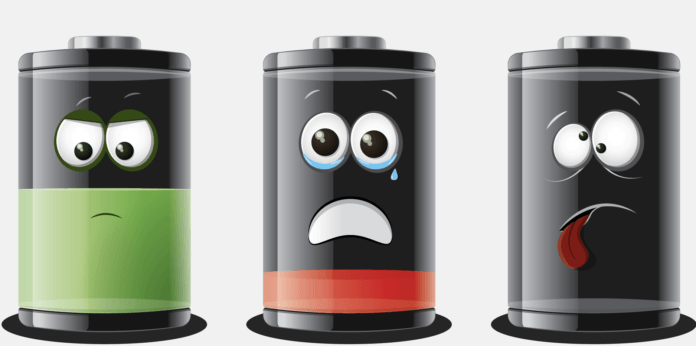We will like to share some common phone battery-related myths that most people adhere to! We grew up in a generation where most of what knew about smartphones were from uncles and aunties. Not to say their facts weren’t accurate, but their thoughts about technology devices may not be the most reliable! The following phrases may be familiar!
“Don’t charge your phone overnight!”
“Must use the original charger, if not the battery will explode!”
“Don’t use the phone while charging, later like the Samsung phone explode how!”
We are sure you’ve heard about Samsung phone cases exploding, or may other dangerous accidents be involving phone battery, but they had happened under exceptional circumstances. So, here are some phone battery myths!
Myth 1: Charging Your Phone Overnight Is Bad For Its Battery
Verdict: FALSE
People tend to use the word “overcharge” loosely. The belief is that if your phone hits 100 battery percent, it will reduce its future capacity. The myth was originally true for old phone batteries but mostly untrue nowadays. Modern batteries are much smarter when it comes to managing power. When it reaches 100%, it stops charging automatically. However, this myth may be true if your phone has a poorly designed case which traps heat. In fact, the biggest danger to the battery is not over-charging, but heat. It may be wise to plug out charging if there is excessive heat coming from the battery area!

“Nominal battery performance is usually specified for working temperatures somewhere between 20°C and 30°C. The performance and indeed life of a battery can be seriously affected by the onset of extreme temperatures and, despite many consumer beliefs, heat is as big a cause of battery failure as is cold.”
Myth 2: Completely Discharging Your Battery Before Charging Is Good For The Battery
Verdict: FALSE
This myth may be true for old batteries, but not for lithium-ion batteries (the battery which all smartphones use). Old batteries would ‘forget’ what their full capacity as if it wasn’t fully drained before charging again. Lithium-ion batteries operate in a smarter way. If 40% of the battery’s life is used and is recharged afterward, it will not count as a complete charge cycle. Over the course of the next day’s use, once it hits 60% discharge, it will count that as one charge cycle.

It is TRUE that lithium-ion batteries diminish in capacity with every charge cycle, but this effect isn’t very large. Like all batteries, it will succumb to wear and tear. Most smartphone batteries retain about 80% of their original charge even after a few years. Since most users swap out batteries or phones within this timeframe, there’s not much reason to really worry about it.
You might use 75 percent of your battery’s capacity one day, then recharge it fully overnight. If you use 25 percent the next day, you will have discharged a total of 100 percent, and the two days will add up to one charge cycle. Most lithium-ion batteries have a rated lifetime of somewhere between 500 and 1,500 charge cycles.
Myth 3: Not Using The Official Brand Charger For Your Phone Will Damage Its Battery
Verdict: MOSTLY FALSE
As much as phone companies would like this to be true, it is not! This myth is simply a marketing tactic for consumers to buy their accessories. However, there are some exceptions, especially in the case for USB-C Cables, and unusually cheap unofficial chargers may be dangerous as well. I recently came across an article that states even the official brand’s phone chargers may not be the best for their own phone! Check out the article here!
Myth 4: Using Your Phone While It’s Charging Is Bad For Its Battery
Verdict: MOSTLY FALSE
This myth is often used to keep some people away from their phones while it is charging. It stays alive not because of any sort of actual evidence, but because of the potential consequences (non-phone related, social reasons?) for people who used too much of their phones unnecessarily. People may say that using your phone while charging may make the device explode, electrocute you or catch fire.

While it may be true if you are pushing your phone’s activity to its limit that results in excessive overheating, there is no real danger of it playing around with it while it’s charging. However, if you feel your phone getting really hot, it is probably a sign of a defective battery, and you should STOP charging it and change the battery immediately.
Myth 5: Disabling GPS or Bluetooth Drastically Help Saves Power From Your Battery
Verdict: MOSTLY FALSE
This myth used to be good advice for old phones. Advancements in the past years have made it nowhere near as draining as it used to before. It is true that disabling all of your phone’s features will save battery life. The power it saves, however, is very little (approximately half an hour over the span of an entire day, so the benefits may not be worth the trouble).

There are exceptions though! If you are in a remote area, and your phone is struggling to find a signal or locate itself, and you feel your phone becoming hotter and hotter, it is definitely a sign that your battery is being drained significantly. Remember that HEAT is the ultimate enemy for the battery.
Myth 6: Closing Apps Will Improve Battery Life
Verdict: FALSE
There is a simple explanation of how phones work with APPs. When you hide an app, it becomes frozen and does not do anything, and does not require any resources. Intentionally closing the app only costs more CPU power and battery to close everything!

By closing the app, you take the app out of the phone’s RAM. While you think this may be what you want to do, it’s not. When you open that same app again the next time you need it, your device has to load it back into memory all over again. All of that loading and unloading puts more stress on your device than just leaving it alone. Plus, iOS closes apps automatically as it needs more memory, so you’re doing something your device is already doing for you. You are meant to be the user of your device, not the janitor.




